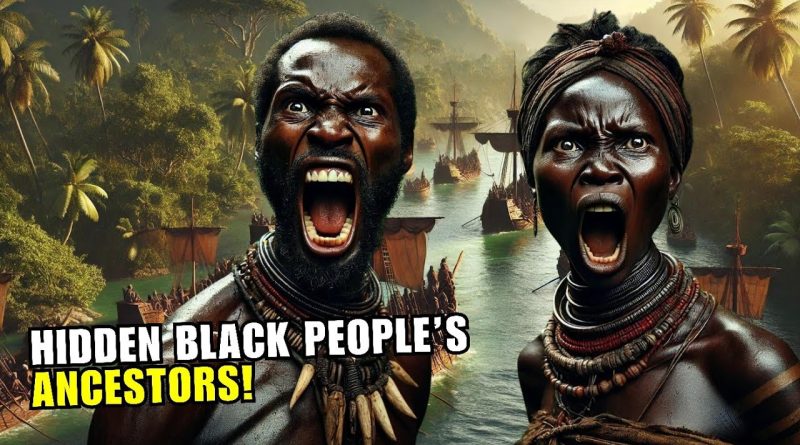Study Reveals Black Americans Aren’t Descendants of Black Slaves But Hidden Native Original People!
Study Reveals Black Americans Aren’t Descendants of Black Slaves But Hidden Native Original People!
Who are the ancestors of African Americans? Well, most African Americans believe that the majority of their DNA has roots in Africa, while the remaining has roots in native American tribes and Europe. This is often backed by genetic studies that reveal that African Americans have 73.2 percent African DNA, 24 percent European DNA and 0.8 percent Native American DNA.
This makes everyone believe that they are majorly descendants of Black slaves. But what if we tell you that it’s wrong? You have been intentionally told so. In fact, studies reveal that about 98 percent of African Americans have native American roots. So, why were you lied to and what do they want to hide?
The fact suggesting that Black people in America are descendants of native Black Indian tribes who lived on the continent before Columbus challenges the widely accepted historical account that most Black Americans are primarily descendants of African slaves brought to America between the 16th and 19th centuries.
In mainstream historical understanding, the transatlantic slave trade brought millions of Africans to the Americas, including what is now the United States, as forced labourers. Evidence such as shipping records, historical documents, and genetic studies supports the narrative that over generations, these African ancestors formed a significant part of the Black population in America.
Proponents of the alternative theory argue that there were indigenous Black populations in America, the Black Indian tribes, long before Columbus’s arrival in 1492. They point to various pieces of evidence, including ancient artifacts depicting figures with African-like features found across the Americas. Even genetic studies prove this argument.
Additionally, some Native American oral traditions include references to dark-skinned peoples living among them, which supporters of the theory interpret as evidence of a pre-Columbian Black presence.
Accounts from early European explorers, like Christopher Columbus, have been cited by proponents of the theory as describing encounters with dark-skinned people in the Americas. These accounts are suggested to indicate the presence of indigenous Black populations.
Genetic studies have played a crucial role in understanding human migration and ancestry, supporting the mainstream view that the majority of Black Americans have ancestry tracing back to West and Central Africa, consistent with the history of the transatlantic slave trade. Proponents of the indigenous Black Indian theory contend that genetic studies may overlook or misinterpret complexities of indigenous and African admixture, challenging these interpretations.
Critics of the native Black Indian theory highlight methodological concerns, pointing out that the evidence presented often lacks rigorous scientific validation. They stress the importance of corroborating evidence from multiple sources, including archaeological, genetic, and historical records.
It’s essential for Black individuals to comprehend black history to truly understand their cultural heritage and identity. Watching documentaries about black culture offers deep insights into the challenges and successes of Black communities. Examining the history of slavery and its effects on Black lives is crucial for recognizing and addressing systemic injustices. Black literature offers a diverse range of stories that mirror the variety and strength of Black experiences. Embracing black identity involves appreciating the depth and diversity of Black culture. Learning about black history facts empowers Black individuals to take control of their narrative and advocate for social justice.
#Blackhistory #Blackhistoryslavery #Blackpeopleancestors #Blackpeopleancestory #BlackIndianAmericantribes
source

